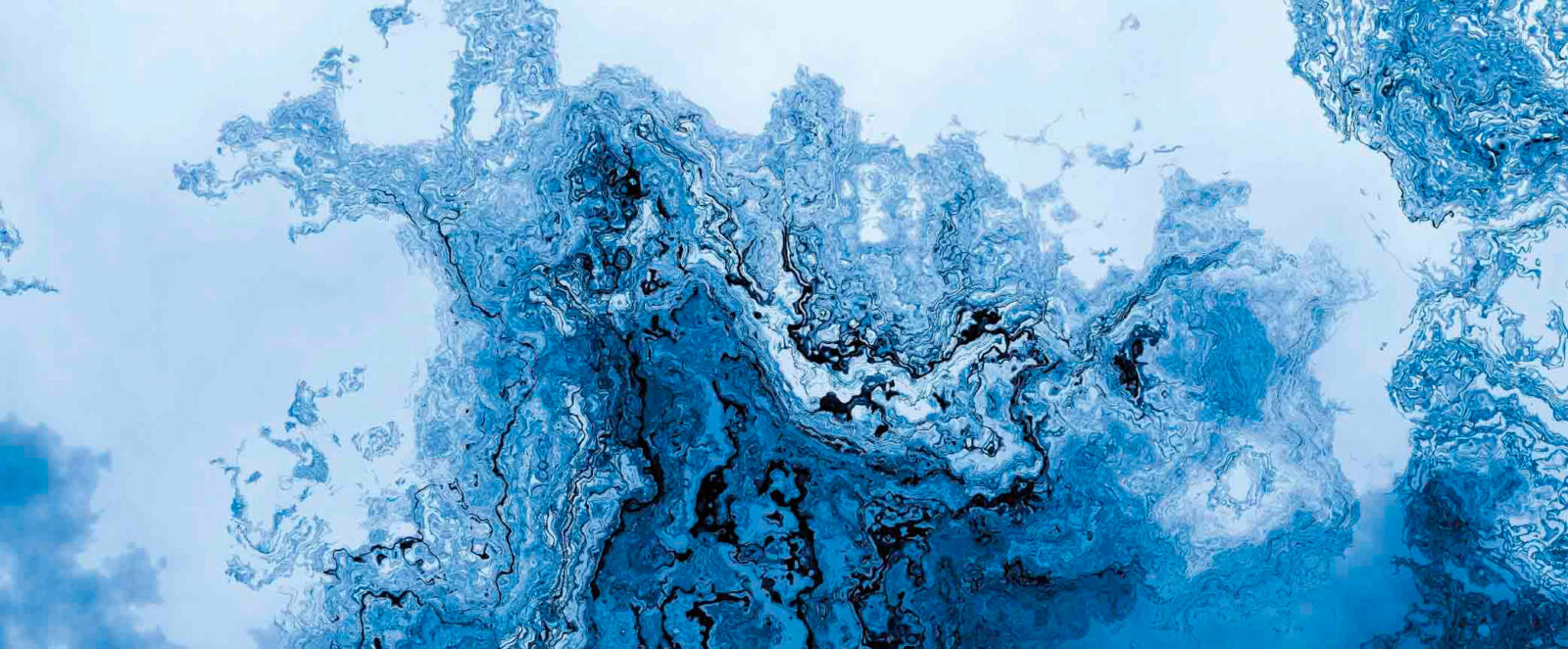


Time, like water, expands when frozen. Historians skate on its surface, seeing reflections of themselves, skimming lines of snow in their wake like an alphabet. They puzzle out patterns and shapes, and by the time they’ve written what they’ve read between those lines with numb, clumsy fingers, the grains are scattered by new skaters, new readers, and the wind.
Time, like water, thaws and melts.
Geologists mark where it streams, burrows in and out of the world’s hidden places. Philosophers examine tides and shorelines, flotsam and jetsam, measure the shifting distance between themselves and time. Physicists muse on ripples in time, like water: what caused them, and how far do they reach? Dancers and musicians keep time, like water, in their bodies. Biologists observe that life swims in time, like water: dives and surfaces, drinks. Life, too, drowns in time—as time, like water, crowds air out of lungs, sucks heat from limbs.
Time, like water, has a boiling point.
Who can say what is lost when time, like water, climbs into the sky? Science fiction writers look up, stare, moisten their mouths, paper over the cracks in their truth-chapped lips before speaking of what they see in those clouds of time, like water, shadowing the landscapes of our lives: the dragons, rabbits, monkeys, the great ships bound for stars, the faces smiling, weeping, leering, brooding and gathering until they burst over us again.
(They burst over us again. They burst over us again. They burst over us again, scratching the record like skates over ice, more skates over less ice, always less ice—)
Time, like water, phase-shifts in cycles: from past to present, present to future. Time, like water, is made up of two things in unequal proportion. Water is two parts hydrogen to one part oxygen; time is two parts future to one part past.
But time, like water, is out of joint, and out of bounds.
Politicians pour foulness into time, like water, divert the rivers of it away from themselves for fear of catching a true glimpse of their doubled faces. Time, like water, swells with rotting bodies of combusted millennia; time, like water, rises in temperature but cannot evaporate, builds pressure, still more pressure, shakes the winds like so many sheets, yellows the crashing sky.
Time, like water, can be stolen.
Corporations bottle time, like water, and sell it at a high markup with attractive labels. Police load cannons with time, like water, gush compressed years from their guns’ mouths to sheer eyes and skin from those who see water, like time, as things to defend.
(There are bars where you can pay to sip water, like time, from all around the world; you are invited to dream, as you drink, that you are visiting those places. Water, like time, has relative dimensions in space.)
Developers raise walls, dig borders, erect grand buildings to secure for some the sunny enjoyment of time, like water: the sparkling vistas of its oceans, the soft bright sand at its cold dark edges, the absence of undesirable bodies marring the view.
Time, like water, is full of refugees.
Time, like water, tumbles its contents like cabochon, smoothes their edges, rounds them with a sleep.
Time, like water, swirls into hurricanes, skimming the heat of too many bodies, too many deaths, too many, so many that it is difficult to fathom, to even conceive of a time, like water, that could be less furious, could breathe in anything but thick fast heaves, could flow without gouging, stream without smothering, steam without scalding, could cool, could calm, a still sweet soft unstolen moment when there is enough for all and historians, geologists, philosophers, physicists, dancers, musicians, biologists, builders, science fiction writers, even, yes, even politicians, could come together in time, like water, and wash, and be made clean —drink, and be nourished —swim, and be supported—breathe, and be believed —and never feel that they, that we, are running out of time, like water, running out of time on feathered feet—
Even as frozen, time, like water, expands.

Amal El-Mohtar has won the Hugo, Nebula, and Locus awards for short fiction and the Rhysling award for poetry three times. She reviews books for NPR and the New York Times, and lives in Ottawa with her spouse and two cats. This Is How You Lose the Time War, a novella co-written with Max Gladstone, was published in 2019 from Saga Press.
Get the latest news and stories from the Rubin, plus occasional information on how to support our work.